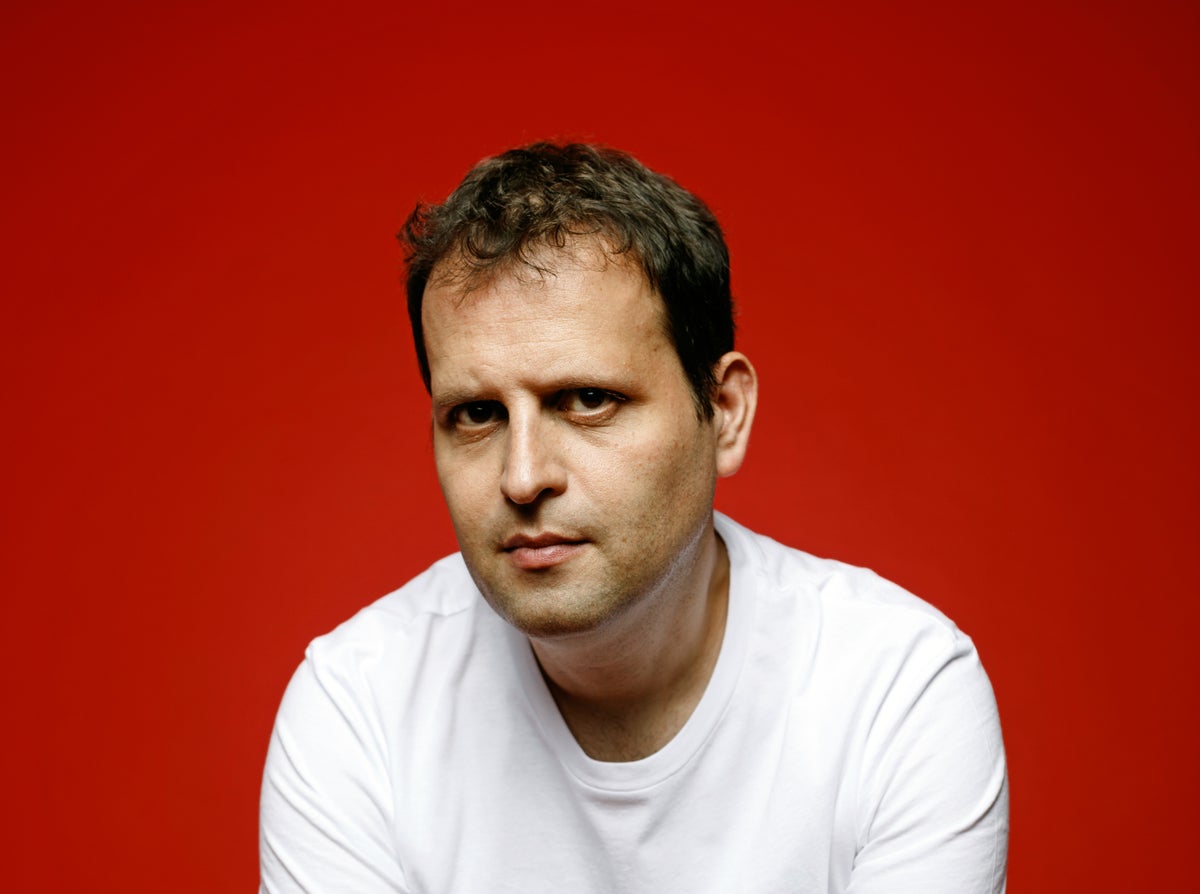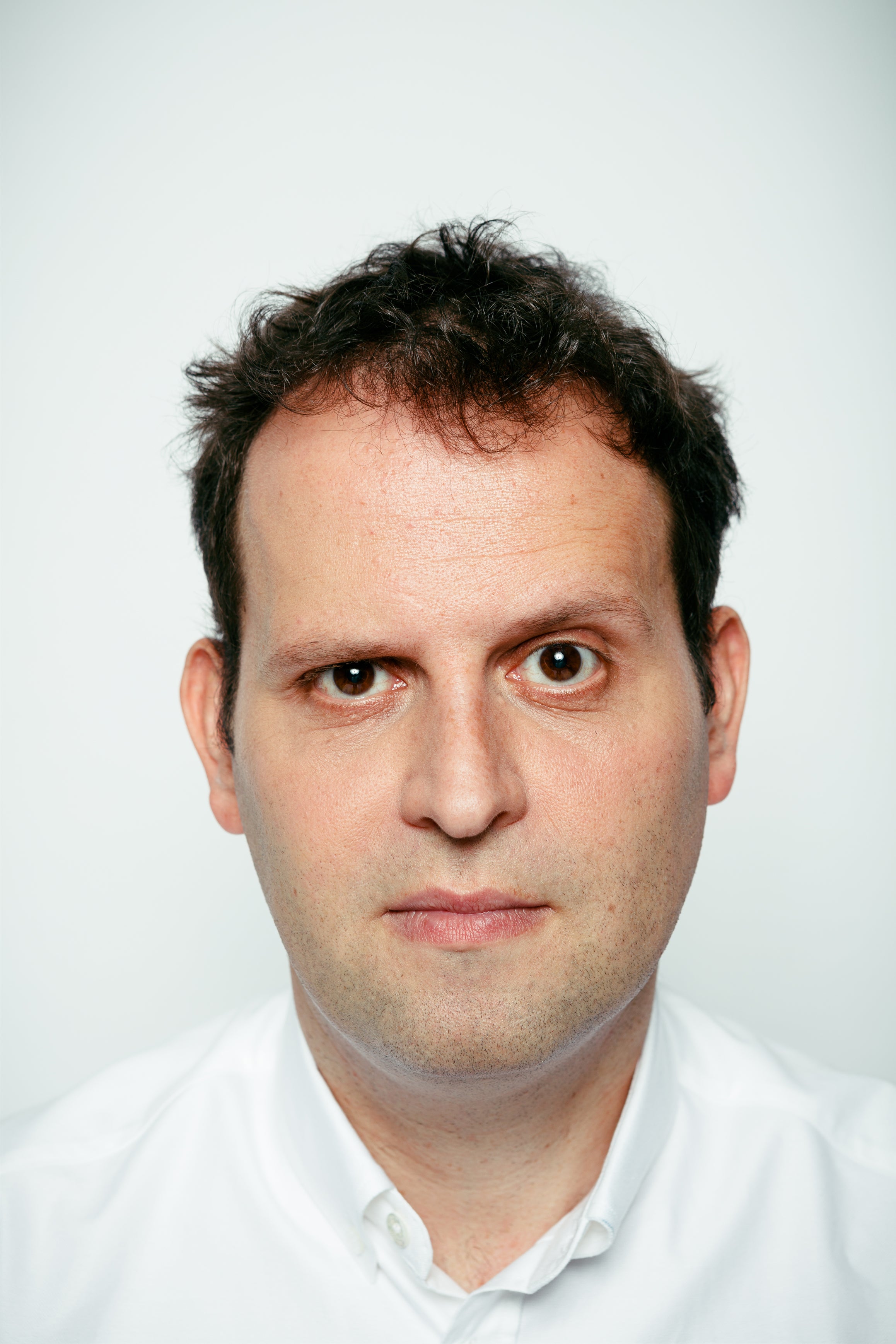
Adam Kay is apprehensive about the skeletons he has let out of his cupboard in his latest memoir, Undoctored.
In the new book, the former junior doctor-turned-comedian and writer reveals an eating disorder, divorce from his wife (he is gay and now married to TV producer James Farrell), the loss of a child and a traumatic sexual assault.
“I feel extremely scared about this stuff I’m saying being in the public domain,” says Kay, 42, whose bestselling first book, 2017’s This Is Going To Hurt, was turned into a TV series starring Ben Whishaw. “But I think if it can make one person decide to get help about something, then it’s worthwhile.”
In the same way This Is Going To Hurt made you laugh and cry, Undoctored combines Kay’s caustic wit with huge vulnerability. There’s darkness and anger, peppered as ever with light-hearted moments. Both a prequel and a sequel, the book features life since he left medicine, forging a comedy and writing career, interspersed with flashbacks to childhood, medic moments, his sexuality and hugely personal events in his life.
When he left medicine in 2010, Kay suffered nightmares and PTSD – the catalyst was a caesarean which went horribly wrong, when he was the most senior person on the ward. The patient had an undiagnosed placenta praevia; the baby died and the mother lost 12 litres of blood and ended up having a hysterectomy.
Time has helped, along with counselling, which he now has regularly.
“Ultimately, the nightmares only properly stopped about five years ago when I started talking about it, reading my diaries on stage and recalling this moment I’d kept inside for so long. But nothing has helped like speaking to friends and professionals about it,” he says.
“I’m probably not a role model for seeking help but I’m a lot better at it, involving experts. I mean, what would I say to someone who is doing their own ante-natal care? I’d tell them to see a specialist, a doctor, a midwife.”

The son of a GP, he writes that his parents essentially pushed him into going to medical school. There, he felt like an outsider, battled body image issues and fought loneliness by going against the grain of who he really was in order to fit in.
He came out to his parents when he was at university, only for them to tell him he just hadn’t found the right girl yet. They must have felt vindicated when, some years later, he married ‘H’, as he calls her.
“In my mind, it wasn’t a case of hiding who I really was, rather celebrating that I had finally become the person society wanted me to be. I had fallen in love with a wonderful woman who loved me back,” he writes.
Looking back, he loved her, but not in the way he needed to – and in the first few weeks after the truth became unavoidable, he was broken, and left medicine and his marriage within a matter of months.
“She knows what’s in the book,” he says today, but is reluctant to elaborate.
He also reveals that they lost a child, which they discovered during an ultrasound scan in the hospital where he worked.
“It was a pregnancy that wasn’t destined to be,” he recalls. “I found myself fainting during the scan and it really exemplified for me the medic’s approach of ‘you just get on with it’. There seems to be nothing so big that you don’t just get on with it – and it’s destructive.”
Returning to work was hard.
“I was really struggling and I was made to feel that you shouldn’t say anything, which made things worse. But if you’re struggling with something you have to talk about it.”
In the days that followed, Kay’s grief was compounded when, on his way to perform a caesarean, another registrar joked about whether he might faint during it.
Kay considered asking if he could step out of early pregnancy clinics for a while, but was too embarrassed to ask any of his colleagues to cover. He also felt jealous and resentful when every day, people were having healthy babies all around him. He was denied time off, wasn’t offered counselling, and tried to move on.
“Losing a child didn’t make it easier to work on labour wards and in fertility services,” he reflects. “The more you push something away, the bigger the explosion when it comes to the surface, and a couple of years down the line I found myself really struggling with that. It was acutely difficult when I was working on the labour ward and remains difficult when I hear happy news from friends who are having a child.”
Kay says he held on to the grief, hiding it for years, and hopes that his honesty in the book might prompt other doctors who are struggling to speak to someone too.
More trauma followed when his medical career was on the wane and he decided to cheat on his wife – he describes the decision as a boil that needed lancing – when the opportunity arose to perform at a medical conference in New Zealand. Kay thought he’d have less chance of being found out if he was on the other side of the world.
After researching gay venues in the city, he ended up in a sauna, where a man in his 40s stood up, took his arm and led him to a cubicle, where he raped him, Kay writes. He didn’t report the attack to police and certainly didn’t tell his wife when he returned home. He just buried his distress and guilt.
“I was very conflicted. I thought, had I led this person on? Was it my fault? Would anyone care and would this blow everything out in the open and my then wife would have found out. It was so complicated – the shame, the stigma.”
He went on stage the night after the assault, he recalls. “Being on stage remains an escape,” he admits. “For those 70 minutes when my job is to make people laugh, I’m not really thinking about anything else. Comedy had been my defence mechanism to a greater or lesser extent all my life, from being the class clown at school to dealing with tricky stuff through medical school and as a doctor.”
The assault has had a lasting effect, though.
“It affects relationships, and because it was linked to performing, sometimes that’s where my mind goes to when I’m on stage.”
For all the professional and personal trauma however, Undoctored is not a misery memoir. There are joyously funny chapters on his marriage to Farrell, with whom he lives in Oxfordshire, and their inroads into having a family of their own, involving a visit to a sperm bank.
Despite his early enthusiasm for having children, Kay suddenly got cold feet.
“It will be right one day, but that day’s not here yet,” he says simply, although he predicts they will probably have children at some point. But is the time ever right?
“That’s the thing, how to have logical, practical discussions about something that is essentially a big emotional decision. I wrote down the pros and cons but you can’t do that with this.”
He’s currently on tour with his one-man show This Is Going To Hurt… More (adamkay.co.uk) and hasn’t any plans to pen a second TV series of This Is Going To Hurt. He hopes to become more politically active to support awareness of the mental wellbeing of doctors and campaign for the NHS.
But he misses being a doctor hugely, and still feels guilty that he left the profession.
“I miss the reason that every doctor goes into it, not for the money or kudos, but because you want to help people. The arts have enormous value and I can raise awareness issues but it’s many steps removed from being on a labour ward and saving a baby’s life.
“I dare say that I will be back in some way, shape or form in the future.”
Undoctored: The Story Of A Medic Who Ran Out Of Patients by Adam Kay is published by Trapeze on September 15, priced £22.







